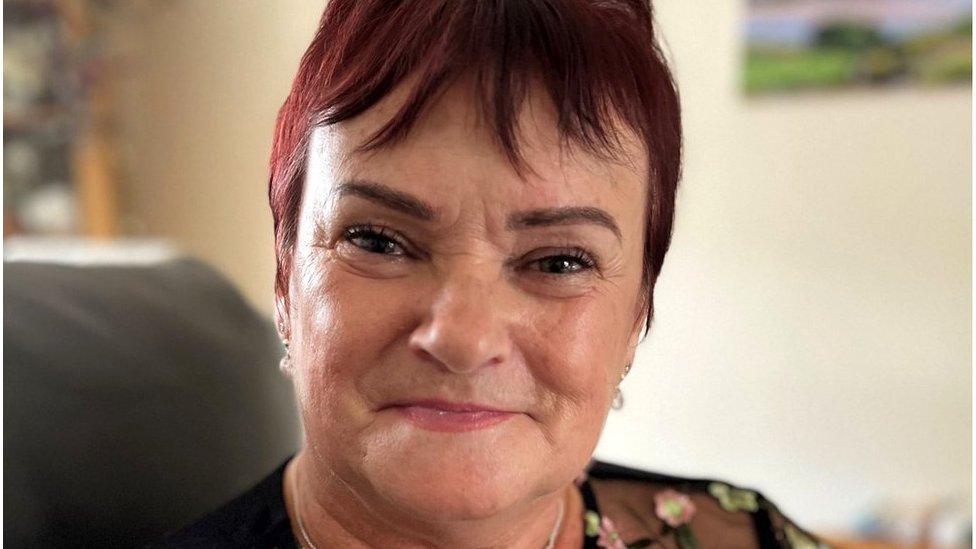Woman with early menopause symptoms 'felt like no-one was listening'
- Published
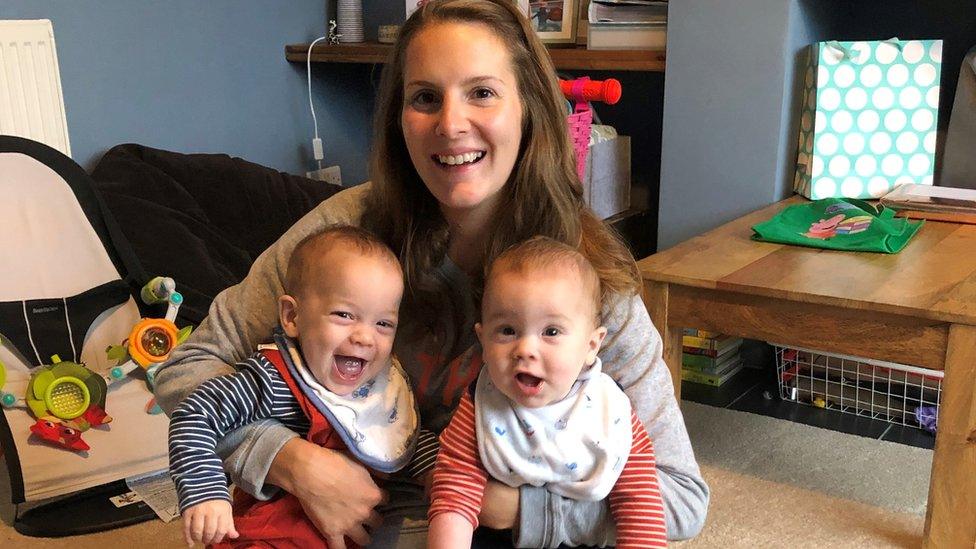
Emily Courtney said there needs to be more support and education around premature menopause in mums with young children
A woman who went into early menopause after the birth of her twins says more support is needed for mums of young children going through the process.
Emily Courtney, 32, from Bristol, was encouraged to seek advice on premature menopause in her teens by her mum.
But Ms Courtney said she was dismissed by doctors who told her to "just have babies young… [which is] ridiculous".
Seeking further advice a few years later, she added: "It felt like no-one was listening to what I was saying."
The health visitor, whose own mum started going through menopause aged 30, has now set up a group, Mothering and the Menopause, to support other mums like her.
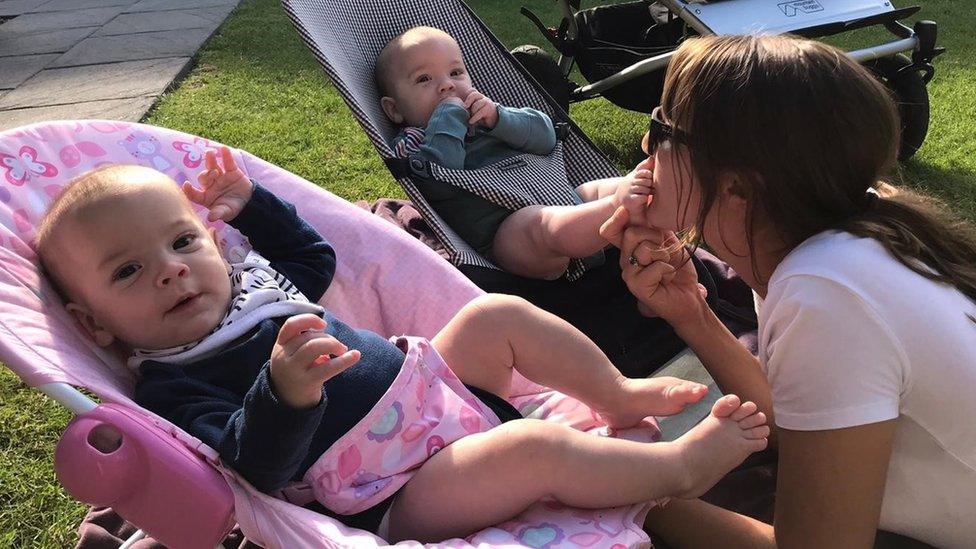
Tests determined Ms Courtney would definitely have early menopause and would be unlikely to get pregnant
After experiencing heavy bleeding and other symptoms, Ms Courtney tried to get investigated for early menopause again at the age of 23.
"The gynaecologist was really good... but she said she didn't know enough and sent me for further investigations," she said.
"They did tests and told me I would definitely have early menopause and it would be extremely unlikely, based on my results, that I'd get pregnant."
Ms Courtney was able to get pregnant and had her daughter when she was 25.
But her next pregnancy ended in a miscarriage and she struggled to get pregnant again.
"I was not ovulating and decided, based on family history, I didn't want to hang around, so I went to a specialist doctor and she gave me Clomid, which is used for ovulation stimulation, and HRT (hormone replacement therapy) to perk my mood up."
She then fell pregnant with twins and after a healthy pregnancy and delivery, everything seemed positive.
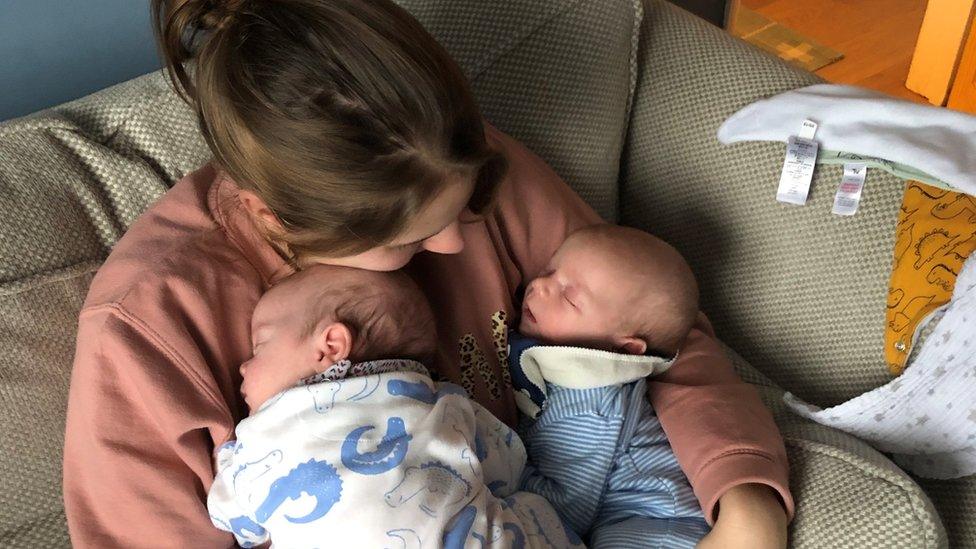
But, when the twins were around eight weeks old "things really fell apart", she said.
"I was having life-limiting conditions, felt angry, low, overwhelmed, suffering severe brain fog, palpitations," which are all symptoms of menopause.
She said that because she was a mum of newborns she had to try and "keep it in".
"The really difficult thing was I'd already been diagnosed with POI (premature ovarian insufficiency) and had a plan, but during 16 times of speaking to GPs, I was dismissed every time," Ms Courtney said.
"It felt like no-one was listening to what I was saying as they just explained everything away with me being a new mum of twins.
"When you have young children they are your priority. You're the bottom of the pile so it's been really hard trying to figure out what's normal and what's not."
She said it was not something she wanted to share with her ante-natal group because "it's embarrassing".
"It is so lonely and isolating," she added.
At that point she said she was so tired she "didn't really fight".
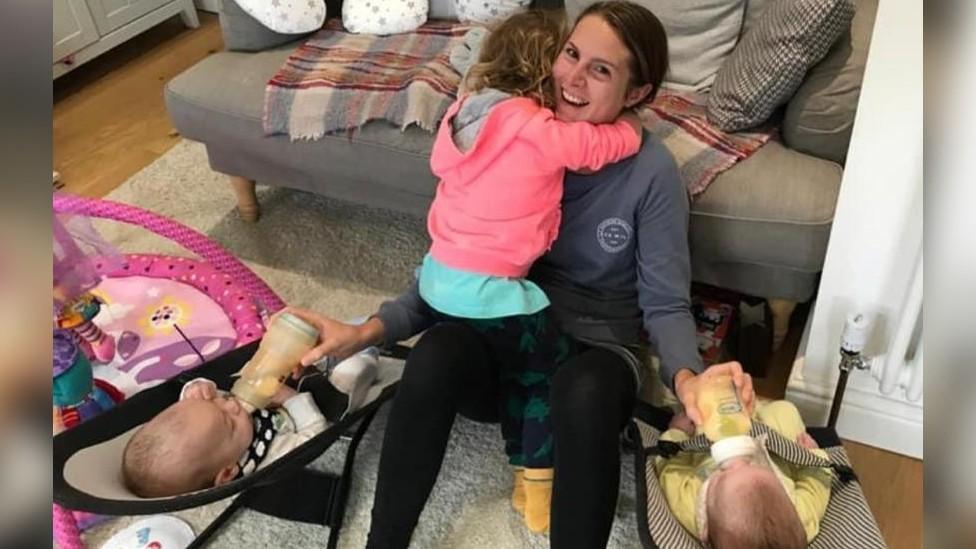
Ms Courtney said when you have young children to look after it can be really hard to work out "what's normal and what's not"
When the twins were around 11 months old, Ms Courtney spoke to a fertility and menopause specialist and was put back on HRT.
She started low with two pumps of gel then rapidly increased to eight pumps a few months later.
She said she suffered burning in her eyes after three days of HRT and now has osteopenia (lower than normal bone density) which is all thought to be due to a delay in treatment.
She also has progesterone intolerance since being put on HRT.

Early menopause
Early menopause below the age of 40 is known as premature ovarian insufficiency (POI).
It is a relatively rare problem, with between 1% of the female population under the age of 40 and 0.1% under the age of 30, experiencing it.
British Menopause Society accredited specialist, Hazel Hayden, explained that these women have a five to 10% chance of conceiving naturally and in 90% of women there is no cause for POI.
"Family history can be so important in recognising women's predisposition to POI," Ms Hayden said.

Ms Courtney is now making changes to her every day life, including completely giving up coffee and going on sertraline - which increases the mood-enhancing chemical serotonin in your brain - to stabilise her mood.
"HRT isn't going to fix everything - it is a life-changing diagnosis," she said.
"I'm only 32 and I want to go and have fun with friends and go on a hen do but I can't because I know I'm going to feel so awful and anxious."
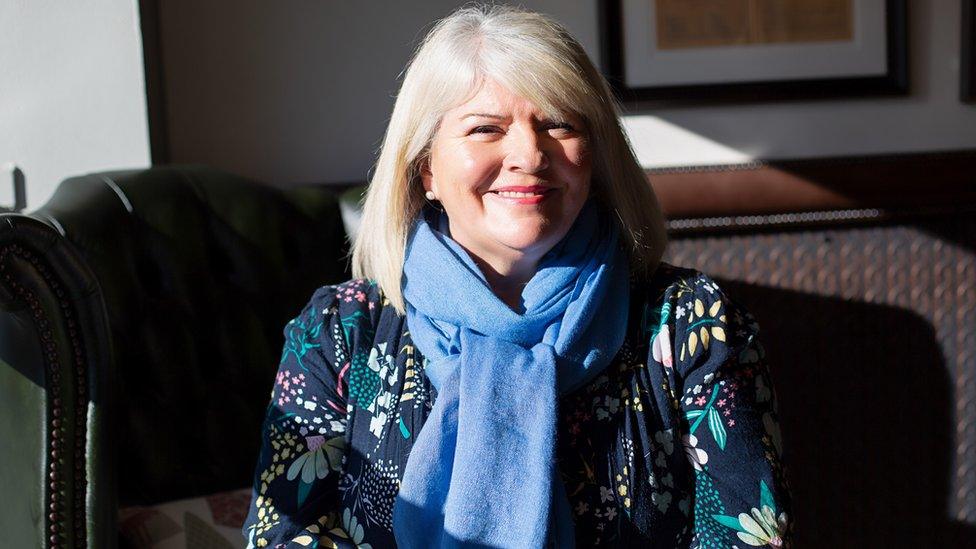
Hazel Hayden is a British Menopause Society accredited specialist
Hazel Hayden has been working in women's health since 2005 and trains other healthcare professionals to become British Menopause Society Specialists.
She said: "Women with children can often be ignored due to lack of education and women getting dismissed that their symptoms are due to looking after young children.
"Sadly, the issue within the NHS is that there is not enough knowledge and training within healthcare professionals around menopause but especially premature ovarian insufficiency."
She said research also shows women get dismissed too often when it comes to hormonal health and this is a "huge issue that needs addressing".
Ms Hayden said a comprehensive education programme needs to be developed for all healthcare professionals "not just ones who are interested in women's health".
'Lack of talking'
But even with a growing awareness of perimenopause and menopause, Ms Courtney thinks women managing the early menopause alongside mothering small children are "left behind".
To try and help offer support, Ms Courtney started a postnatal group three years ago and set up an online group in February.
She said she hopes the Mothering and the Menopause resource helps people in a way she would have been so grateful for when she was desperate for help.
"There is definitely a lack of talking about early menopause if you have kids," she said.
She said working in Bristol as a health visitor, there are women who are having children at the age of around 39-years-old.
"Some will experience menopause with a young child, so I definitely think it is something people will talk about more," she said.
She hopes the work she is doing through her platform will also continue to make a difference.

Follow BBC Bristol on Facebook, external, X, external and Instagram, external. Send your story ideas to us on email , externalor via WhatsApp on 0800 313 4630, external
Related topics
- Published28 February 2024
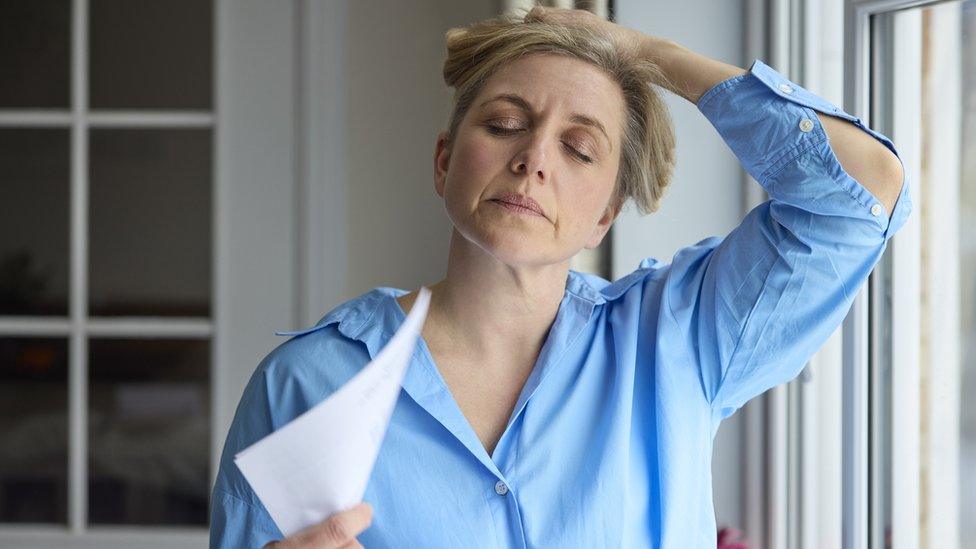
- Published24 February 2024
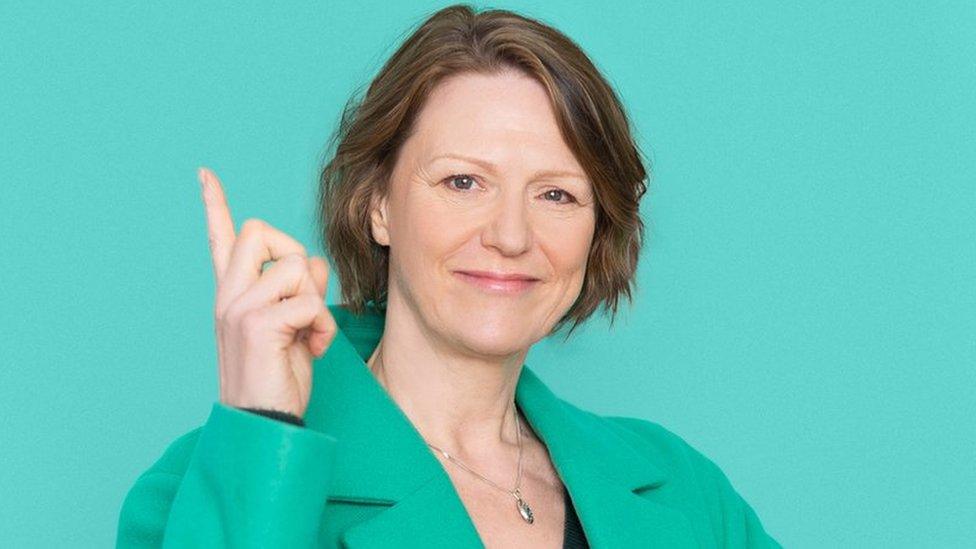
- Published22 February 2024
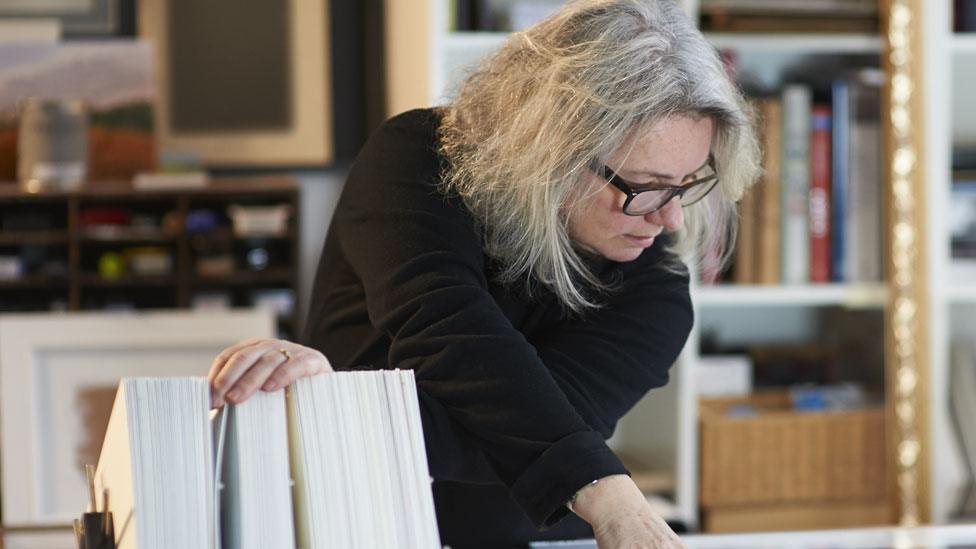
- Published19 February 2024
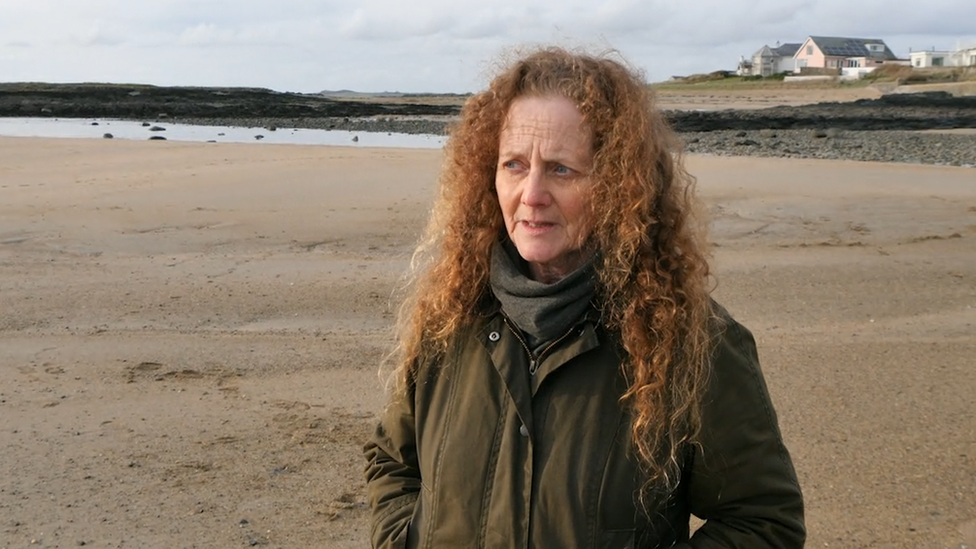
- Published5 February 2024
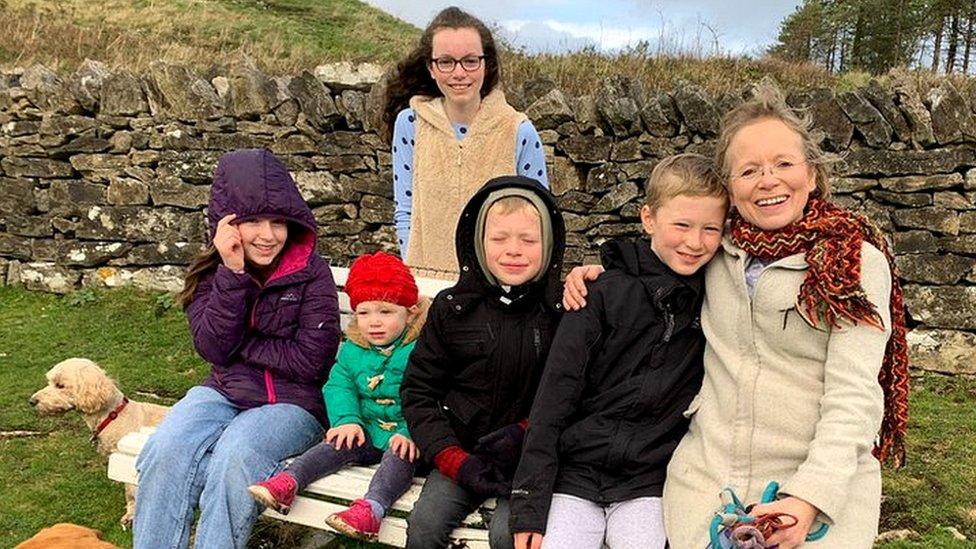
- Published2 January 2024
